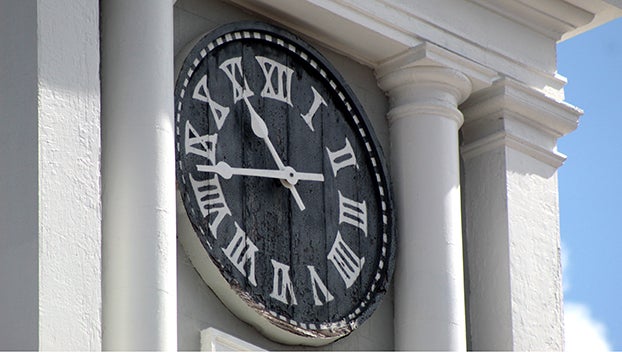Natchez National Historical Park, committed to telling stories of all people of Natchez
Published 4:06 pm Wednesday, April 7, 2021
|
Getting your Trinity Audio player ready...
|
Do you remember the ancient Indian story about the three blind men and the elephant? I think that it points to much that is true about the historical narratives that we tell here in Natchez.
In this story, one blind man touches only the elephant’s trunk and declares that an elephant is a writhing creature like a snake. One touches only a leg and describes elephants as being like tree trunks. A third feels the elephant’s side and says it is like a brick wall.
Every one of these descriptions is true, but when told alone they are not complete. The moral of the story is that there are other histories that are told from other perspectives that may be different from what we have been taught or what we have seen. Historical facts may not change, but their selection and their interpretation may be highly subjective based on a cultural point of view.
Natchez National Historical Park is committed to carrying out its mandate from Congress to tell the stories of “all the people of Natchez, from the earliest times to the modern era.”
Beginning in the early 1990s, the National Park Service began broadening the tourism narrative at Melrose to include a focus on the lives of the enslaved – both at the estate and at the cotton plantations owned by John McMurran.
The William Johnson House, opened to the public in 2004, tells the story of a mixed-race man who was born into slavery but prospered economically as an adult and became a slave holder himself.
The Fort Rosalie site, which opened in 2016, tells the story of the French settlement that ultimately grew into the town. It describes the arrival of the earliest enslaved people from Africa and the Caribbean. It explains the 1729 destruction of Fort Rosalie that graphically illustrates the conflicting perspectives held by different ethnic and cultural groups.
Natchez National Historical Park has also worked with local partner institutions to tell these broader stories. A primary example is the series of Historic Natchez Conferences that have been cosponsored with the Historic Natchez Foundation.
During the Civil War Sesquicentennial, the park hosted a symposium on the Second Creek uprising, presented several public events relating to the Union occupation of Natchez, and assisted homeowners with accurate historical narratives. In 2015, on the 50th anniversary of the Parchman Ordeal, the park hosted a panel of scholars who presented an overview of the Civil Rights Movement in Natchez.
In 2016, during the Natchez Tricentennial, the park published the daily Natchez History Minutes on social media that covered a wide range of Natchez topics. The park also played a leadership role in the “Natchez Legends & Lore” weekly lecture series that highlighted a broad spectrum of Natchez stories.
As the park moves into its next phase, with ownership of the Natchez Visitor Center and land acquisition beginning at the Forks of the Road, telling an accurate story of chattel slavery in Natchez is essential.
This month, Natchez National Historical Park is once again partnering with the Historic Natchez Foundation, to bring Joe McGill’s “Slave Dwelling Project” experience to Natchez. The pandemic will prevent in-person participation for McGill’s visit to Forks of the Road (11:00 a.m.) and Melrose (6:00 and 7:00 p.m.) on April 17, but the public may participate virtually through connections at www.slavedwellingproject.org.
Kathleen Bond is the superintendent of Natchez National Historical Park.






